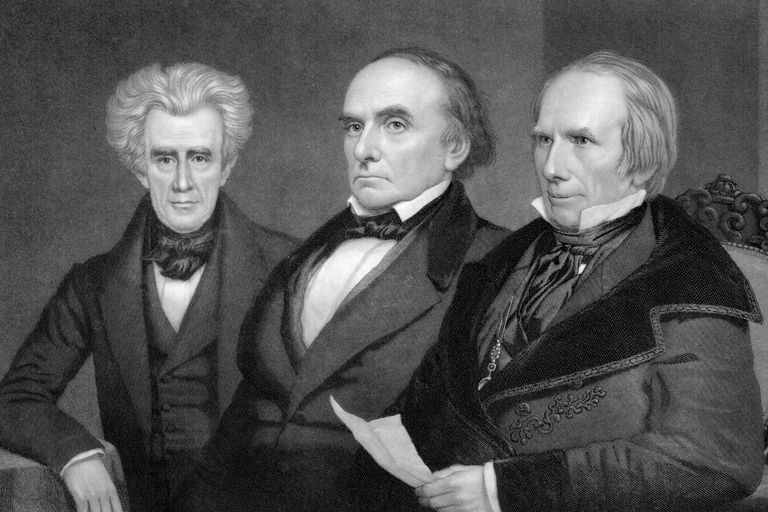Posts Tagged Daniel Webster
The Great Triumvirate
Posted by Joshua Sharf in History on September 20th, 2018
 I’m continuing to work through Merrill Peterson’s The Great Triumvirate, about Daniel Webster, Henry Clay, and John C. Calhoun. These three legislative titans dominated Congress during a period of Congressional dominance from the 1820s through the 1840s. We normally think of this as the Age of Jackson, and most histories revolve around the key presidents of the period – Jackson and Polk, and to some degree the accidental John Tyler. Peterson’s genius is to recognize both the relative legislative control compared our age, and to examine both politics and policy through the shifting relationships among these three giants.
I’m continuing to work through Merrill Peterson’s The Great Triumvirate, about Daniel Webster, Henry Clay, and John C. Calhoun. These three legislative titans dominated Congress during a period of Congressional dominance from the 1820s through the 1840s. We normally think of this as the Age of Jackson, and most histories revolve around the key presidents of the period – Jackson and Polk, and to some degree the accidental John Tyler. Peterson’s genius is to recognize both the relative legislative control compared our age, and to examine both politics and policy through the shifting relationships among these three giants.
Since it’s 2018, and not 1838, things differ. But pretty much every reading of American history is a lesson in how our own political dynamics have deep roots.
For instance, our political system is, as one wag put it, “ridiculously over-designed” when it comes to distributing political power. We not only have federalism, which limits the national government and reserves most policy-making to the states. We also have, at every level of government, separation of powers among the executive, legislative, and judicial branches. These structures were so over-designed that it has taken a couple of centuries and the trojan-horsing of late 19th Century European political ideas inside our walls to break down these barriers.
Given the proximity to the Founding – the creation of the Constitution was still a living memory into this period, one might therefore think that one party would be dedicated to a concentration of power, and one party dedicated to a distribution of power as the Founders intended. That roughly, although not perfectly, mirrors the situation today.
But in the Clay Whig vs. Jackson Democrat era, it didn’t. The Whigs sought broader federal powers, especially as regards internal improvements and protectionist tariffs, but legislative supremacy at the federal level and vigorous westward expansion. The Democrats wanted to devolve federal power and money back to the states, but concentrate federal power in the executive. In other words, each sought to adhere strictly to certain aspect of the Constitutional distribution of powers, while stretching others to achieve its desired political ends. (It goes without saying that neither had yet conceived of the bureaucratic state as a means of immunizing their policy preferences from popular opinion.)
The Jacksonians saw themselves as the logical extension of the “Spirit of ’98” and the Jeffersonian revolution of 1800, which is why, up until the current history purge, Democrats called their annual county dinners “Jefferson-Jackson Day” dinners.
Webster, never the leader of the Whigs but their most active campaigner in 1840, sought to turn the tables on them, relishing “beating the Democrats at their own game.” He campaigned on the idea that returning power to the legislature was fulfilling the Jeffersonian idea. The Democrats were appalled at his claim, but given the deep economic depression in 1840, nothing they said was likely to make much of an impression on the voting public.



